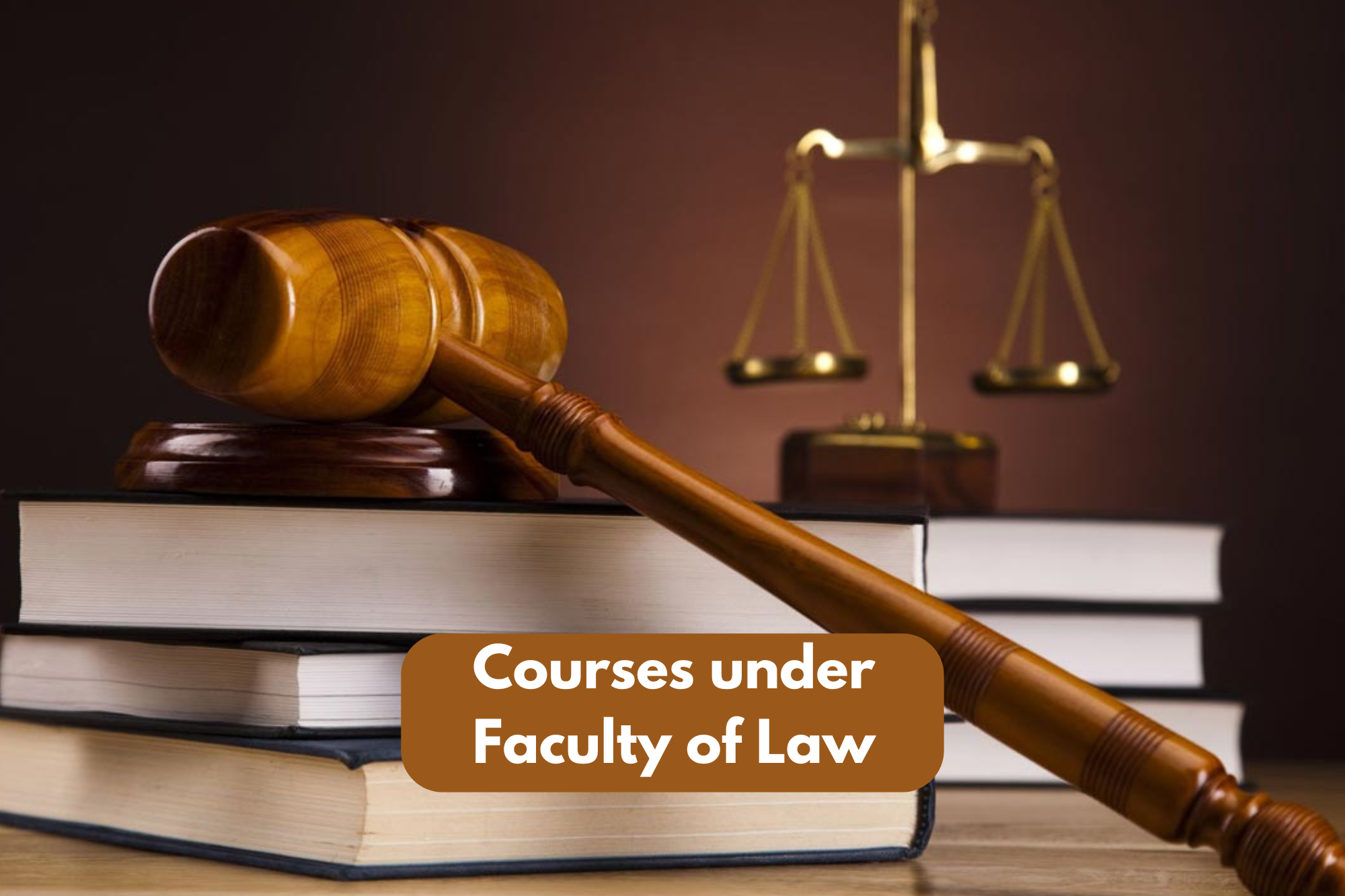Share this Post
The Faculty of Law is a cornerstone of higher education institutions across Africa, offering a diverse array of courses designed to equip students with comprehensive legal knowledge and practical skills.
These courses are meticulously structured to prepare graduates for various legal professions and to address the dynamic challenges within the legal landscape.
This article provides an in-depth overview of the typical courses offered under the Faculty of Law, highlighting core subjects, elective options, and specialized programs available in prominent African universities.
Core Undergraduate Law Courses
The undergraduate law curriculum is designed to provide a solid foundation in essential legal principles and practices. Core courses typically include:
- Legal Methods: An introductory course that familiarizes students with legal research, analysis, and writing techniques.
- Law of Contract: Focuses on the principles governing legally binding agreements between parties.
- Law of Torts: Examines civil wrongs and the legal remedies available to aggrieved parties.
- Constitutional Law: Studies the structure and functions of government institutions and the rights of individuals under the constitution.
- Criminal Law: Covers offenses against the state, including their definitions, classifications, and applicable penalties.
- Property Law (Land Law): Deals with the rules governing ownership and use of real property.
- Equity and Trusts: Explores the principles of equity and the administration of trusts.
- Commercial Law: Addresses legal issues related to business activities, including trade and commerce.
- Nigerian Legal System: Provides an overview of the legal system in Nigeria, including its history, sources, and structure.
- Law of Evidence: Studies the rules and principles governing the admissibility of evidence in legal proceedings.
- Jurisprudence and Legal Theory: Examines philosophical concepts and theories underpinning the law.
- Company Law: Focuses on the formation, management, and regulation of companies.
- Clinical Legal Education: Offers practical legal experience through participation in legal clinics or internships.
- Long Essay: A research project that allows students to explore a specific legal topic in depth.
These courses are fundamental in shaping a well-rounded legal education, ensuring that graduates possess the necessary knowledge and skills to excel in the legal profession.
Elective and Optional Courses
In addition to core subjects, law faculties offer a range of elective courses that allow students to specialize in areas of interest. Some of these electives include:
- Industrial/Labour Law: Examines the legal framework governing employment relationships and labor disputes.
- Banking and Insurance Law: Focuses on regulations affecting financial institutions and insurance companies.
- Intellectual Property Law: Covers legal protections for creations of the mind, such as inventions, literary works, and trademarks.
- Women and Minority Rights: Explores legal issues related to the protection and promotion of rights for women and minority groups.
- Energy and Natural Resources Law: Addresses legal aspects of energy production and the management of natural resources.
- Arbitration Law: Studies alternative dispute resolution mechanisms outside traditional court systems.
- Administrative Law: Focuses on the rules and principles governing administrative agencies’ actions.
- Shipping Law: Deals with legal issues related to maritime activities and transportation.
- Environmental and Planning Law: Examines regulations aimed at protecting the environment and governing land use planning.
- Conveyancing Law: Covers the legal process of transferring property ownership.
- Public International Law: Studies legal relations between nations, including treaties and international agreements.
- Family Law: Addresses legal issues related to family relationships, such as marriage, divorce, and child custody.
- Taxation Law: Focuses on laws governing the assessment and collection of taxes.
These electives enable students to tailor their education to specific interests and career goals, providing deeper insights into specialized legal fields.
Specialized Programs and Postgraduate Studies
For those seeking advanced legal education, many African universities offer specialized programs and postgraduate degrees. For instance, the University of Cape Town’s Faculty of Law provides a variety of undergraduate and postgraduate courses, including core courses and electives for LLB programs, as well as postgraduate diplomas and LLM degrees.
Similarly, the University of the Western Cape’s Faculty of Law offers LLM/MPhil and LLD/PhD degrees in several areas of specialization, including:
- Human Rights Protection
- Labour Law
- Environmental Law
- Mercantile Law: Encompassing Corporate Law, Tax Law, Competition Law, Trade Law, and Investment Law.
- Transnational Criminal Justice
- Legal Pluralism and Family Law
These programs are designed to deepen legal expertise and research capabilities, catering to professionals aiming to specialize further in their legal careers.
Conclusion
The Faculty of Law in African universities offers a comprehensive curriculum that balances foundational legal education with opportunities for specialization.
Through a combination of core courses, electives, and advanced programs, these institutions prepare students to navigate the complexities of the legal profession and contribute meaningfully to the justice system.
Whether pursuing undergraduate studies or advanced degrees, law students in Africa have access to a rich array of courses that equip them with the knowledge and skills necessary for successful legal careers.





